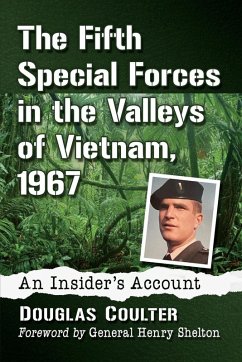
Creating the Credibility Gap: Military Advisory Command, Vietnam, and the Media
Versandkostenfrei!
Versandfertig in über 4 Wochen
52,99 €
inkl. MwSt.

PAYBACK Punkte
26 °P sammeln!
This study investigates the effects of public affairs policy changes on the military and media relationship during Vietnam. During the Vietnam War, the Military Advisory Command, Vietnam failed to follow US Army doctrine and regulations in dealing with the media. Throughout the course of the war, different organizations influenced policy changes that in turn had direct effects upon public affairs officers ability to convey official statements to reporters. Public affairs policy decisions originated from both military command structures and civilian, political sources. As the war progressed, th...
This study investigates the effects of public affairs policy changes on the military and media relationship during Vietnam. During the Vietnam War, the Military Advisory Command, Vietnam failed to follow US Army doctrine and regulations in dealing with the media. Throughout the course of the war, different organizations influenced policy changes that in turn had direct effects upon public affairs officers ability to convey official statements to reporters. Public affairs policy decisions originated from both military command structures and civilian, political sources. As the war progressed, the military began to lose credibility with reporters, and this adversely affected their ability to influence how and when stories were conveyed back to the American public. Policy changes had a decidedly cumulative effect over time. Changes in policy were often accompanied by the realization within the public affairs and military command structures in Vietnam that reporters would not be movedfrom covering the war as they saw fit, yet these same military officers still acquiesced to the pressures of higher authorities and enacted policy changes. This dichotomy between the need to convey honest and candid information to reporters and their requirement to remain loyal to their superiors produced a media campaign that invariably failed to be effective. Future US Army leaders should always remember the consequences of losing faith with reporters and the effects this can have on their ability to relay important information to the public.












